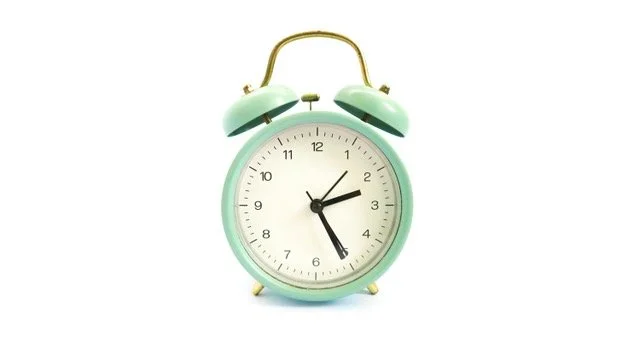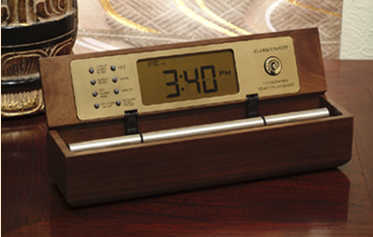HOW MUCH SLEEP 🤔
Adults need seven to nine hours of sleep daily, teens between nine and ten and school age children need at least 10 hours.
SLEEP LOSS AND DIABETES
Less sleep and poor-quality sleep can lead to obesity and diabetes. This is likely due to changes in hormone secretion.
The stress hormone cortisol dips at night to help lower and stabilize blood sugar. But if you don’t get enough rest, cortisol levels may remain elevated, which can lead to an increase in blood glucose.
Sleep also affects the hormones ghrelin and leptin, which influence appetite and satiety. If you don’t get enough sleep, you may produce too much ghrelin, which can you make you feel hungry and lead to overeating, possibly with an increase in cravings for sweets and starches.
Finally, a lack of sleep has been linked to increased inflammation, which can contribute to insulin resistance and elevated blood glucose levels.
QUALITY MATTERS
Getting consistent quality and uninterrupted sleep is a critical component of preventing chronic diseases such as prediabetes, type 2 diseases, obesity and more.
I get seven to eight hours of sleep per night. However, I realized after wearing a Whoop, wearable tracker that calculates the quality of my sleep, that I was not getting good quality sleep. Based on my data, I made changes in my nightly routine before bed and found myself more rested and refreshed in the mornings. If you have problems sleeping, I believe a consistent nightly routine would be of benefit to you.
Also, having been diagnosed with and subsequently reversed my prediabetes, I noticed a direct correlation between the quality of my sleep and the timing and content of my dinner. The more time between dinner and bed, the better I slept. If dinner had more carbs, therefore spiking my blood sugar, I had disruptive sleep.
MY TOP THREE SLEEP HYGIENE PRACTICES
Eat at least 3 hours before bedtime
Go to sleep and get up at the same time every day (including weekends)
Leave my iPhone in another room before bed; consider an old school battery operated alarm clock.
OTHER SLEEP HYGIENE PRACTICES
Establish a nighttime routine: We tend to have a lot of INPUT during the day from work, school, social media etc… What if you did some OUTPUT before bed? It may be journaling about your day (e.g., 3 things that went well, 3 things you’re grateful for, 3 things you appreciate about yourself), stretching and/or sitting quietly with a cup of tea (decaf) and emptying your mind.
Turn off all electronics an hour or two before bed: This would include the TV, computer games and such. And consider also silencing your smartphone for that hour or two before bed.
Be mindful of your caffeine intake after lunch: Caffeine is a stimulant and for the average person, it makes it harder to go to sleep, will shorten your sleep time and it can make your sleep less restful and refreshing.
No afternoon naps: While a nap can improve alertness and reduce fatigue, if done in the afternoon, it can make it harder for you to fall asleep at night.
Exercise, but not before bed: There are those few people who can exercise in the evening and have no problem falling asleep. But for most of us, it is best to do physical activity earlier in the day.
Keep your room cool: Our body temperature naturally drops when we sleep, so if the room is warm, it can be harder for our body to cool down and fall asleep. During the night if we get too warm, we are more likely to toss and turn and wake up.
Create a healthy sleep environment: Is there clutter in your bedroom? Clutter can be visually distracting, a source of stress and may make it difficult for you to move around your bedroom. It’s been proven (there’s always a study) that people who had more clutter in their bedrooms were more likely to have trouble falling asleep and staying asleep.
Avoid eating or working in bed: When you eat in bed, you are more likely to overeat and make unhealthy choices. This is because you are most likely on your computer or watching TV. When you work in bed, you are telling your body that your bed is a place to work instead of to sleep. Consider reserving your bed for sleep and sex, and on the occasion that you may be sick.
Make your room as dark as possible: Studies have shown that sleeping in a dark room can improve sleep quality and duration. Exposure to blue light, which is emitted by electronic devices such as smartphones, TVs and computers, suppress the production of melatonin which makes it hard to fall asleep and stay asleep. In addition to (blackout) curtains, consider not having any electronic devices (including a television) in your bedroom 🤔
Magnesium Glycinate: This type of magnesium is the most effective type for supporting sleep as it may help relax your nervous system and your muscles. I currently use KAL Magnesium Glycinate “almost” nightly. Check with doctor and see if this is a good option for your body and your goals.
About my sleep? I am that person who thrived on 7am classes in college. As an adult with a family, I woke up early for a bit of quiet before the activity of breakfast, school drop offs and getting to my desk by 8am. Today, as an empty nester, I wake up at 345 am to the progressive chimes of my clock from Now and Zen, a few of which I’ve owned since 2002. The wake-up time? Inspired by attendance at a workshop with Dr. Joe Dispenza in 2015 where he had us meditating at 4am (more in a future post).
Not everyone is a morning person. Some people thrive in the late evening hours. And that’s okay. The important thing is to consistently get seven to nine hours of quality sleep nightly.
If you want to fully experience and enjoy your waking moments, you owe it to yourself to get not just more sleep, but good quality sleep.
You are the CEO of your health, and an experiment of ONE. No one is like you 💖
Try these tips, see if they make a difference for you and let me know if any of them helped ☺️
Sleep well, my readers!
Natalie


